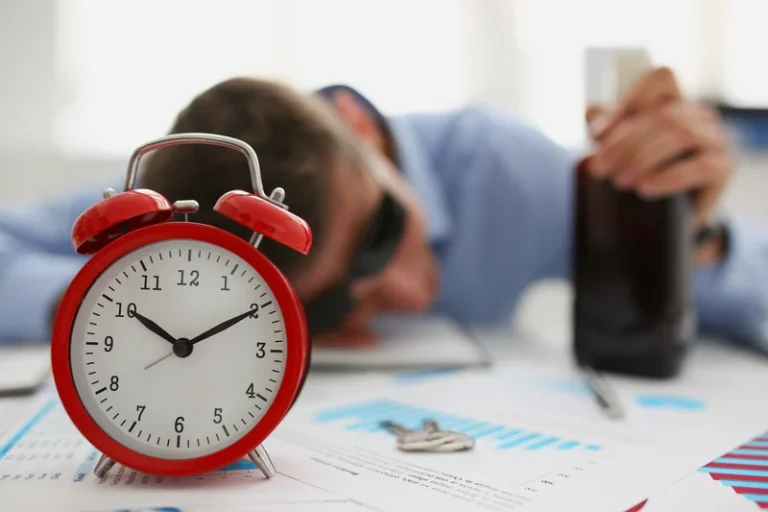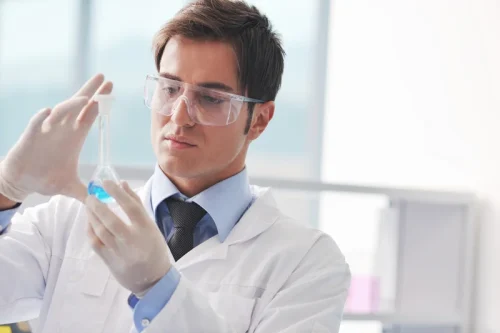In the next section, we will explore the importance of embracing a sober lifestyle and the ongoing support required to continue the journey of recovery. Second, savor the positive emotions and know that with the right treatment, dedication, and self-care, you will find a sustainable path complete with authentic joy. Creating a sustainable new lifestyle without or with less alcohol requires navigating both highs and lows. Growth happens in discomfort, and it’s important to recognize challenging moments as learning opportunities. If you are able to find healthy replacements instead of turning to alcohol, you will develop positive coping strategies to strengthen your health and well-being, which aid in prevention. Addiction involves brain mechanisms, particularly in the dopamine system crucial to reward processing.
How Can I Tell If I Have An Alcohol Addiction?
It’s also possible for your rehab experience to be a thorough mix of these levels of care. Some programs start patients in a residential program environment, but then transition them to outpatient as they progress. Your particular treatment program may look different depending on your particular needs and the facility you choose. Its first secret trick is building tolerance through neuroadaptation. As we drink more, our bodies adapt, requiring higher quantities to achieve the same effects, pushing us deeper into the pitcher plant. The basal ganglia, a part of our brain involved in habit formation, strengthens the association between drinking and the context in which it occurs.
- For many alcoholics, the first step of this stage involves going through a detoxification, or alcohol detox, process.
- This means that you may be able to hold things together on the outside while drinking is still impacting you in other ways.
- Individuals grappling with substance use disorder (SUD) and addiction often face complex challenges, necessitating a multifaceted approach for resolution.
- When alcohol becomes a daily habit, we find ourselves slipping further down the pit.
- Outpatient programs allow individuals to continue their daily responsibilities while receiving the necessary therapy and counseling to support their recovery journey.
- First, it’s important to understand the signs of both acute and post-acute withdrawal.
What is Alcohol Recovery?

The fly slides deeper and deeper, eventually finding itself trapped in a place where escape seems impossible. This is available from a range of support groups and professional services. Alcohol dependence develops over time and can disrupt the balance of gamma-aminobutyric acid (GABA) in the brain and glutamate. GABA controls impulsiveness, while glutamate stimulates the nervous system. A person who drinks excessive alcohol may not be the first to realize it is a problem.

We Accept Most Insurance Providers

Seeking online alcohol treatment is an act of self-care, and something to be proud of. With a Care Team dedicated to you, your alcohol recovery timeline will begin to crystalize as you learn more about yourself and undergo enriching changes. With longer term sobriety or moderation, a profound sense of clarity will emerge. Not to mention, the lasting health benefits to the immune system, liver, blood pressure, mental health and much more. Symptoms of a drinking problem might include relationship struggles because of the substance, financial issues caused by buying alcohol, legal issues, and using alcohol to deal with stress. Some physically manifested signs include restlessness, nausea, insomnia, shakiness, and sweating.
Stage 4: Maintaining Sobriety
- Of all stages of alcoholism recovery, this one is the longest – studies show it can last up to five years.
- Talk to your doctor about which options might be suitable for your needs.
- If you feel that any of our content is inaccurate, out-of-date, or otherwise questionable, please contact at
- Recovery from alcoholism is a journey of personal growth and achievement.
- A better bet is to use this time to develop a detailed action plan and identify strategies that will help them conquer their alcohol addiction.
However, when consumption patterns change and dependence grows, it can lead to a progressive condition known as alcoholism. Recognizing the stages of alcoholism early on can be the key to prevention and stages of alcoholic recovery effective intervention. Just as the 12 steps outline the path to recovery for individuals struggling with addiction, there are also 12 Traditions that are the spiritual principles behind the 12 steps.
What causes alcohol use disorder?
- If you used alcohol as a form of stress-relief in the past, it’s important to replace drinking with healthier forms of coping and self-care.
- Each day presents an opportunity to make progress and move towards a healthier, more fulfilling life.
- Areas of executive function regain capacity for impulse control, self-regulation, and decision-making.
- Some of the physical symptoms include shakiness, bloated appearance, sweating, changes in skin complexion, weight gain or loss, nausea, sleep issues and more.
- People discover the extent, to which using alcohol has compromised their quality of life.
Our facilities across the U.S. offer a full continuum of care, custom treatment plans, and comprehensive discharge plans to aid in the success of your recovery. There is something delicious about our first taste of alcohol, although not in a literal sense. The truth is that most of us squint at our first sips until we learn to acquire the taste over time. But the deliciousness does not have to come from the taste—it comes from the feelings. With two party tricks up its sleeve, alcohol has its way to help us feel good, at least temporarily. The first step toward a person’s recovery is to acknowledge they have an alcohol dependency problem.
As your body adjusts to routines without alcohol, this will improve. We also suggest developing new nighttime rituals that calm your mind and body before bed. Journaling to release stressors or trying guided meditation are great places to start.

- However, you may choose a different recovery path from the 12 steps because you decide not to consider yourself to be powerless as the first step of AA states.
- These triggers can be emotional, social, or environmental factors that remind individuals of their past relationship with alcohol.
- Once an individual has completed the initial stages of alcohol recovery, the focus shifts to maintaining sobriety and preventing relapse.
- In addition, there are nonprofit organizations such as American in Recovery and the National HIRE Network that specifically help those with addiction or criminal history to find work.
- The transition stage and post-acute withdrawal symptoms can last up to 2 years.
